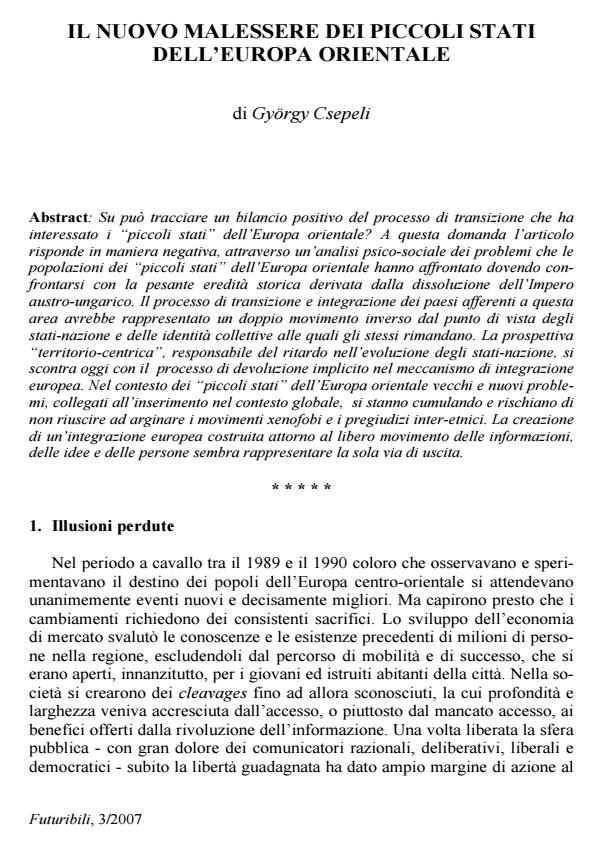Il nuovo malessere dei piccoli stati dell'Europa orientale
Journal title FUTURIBILI
Author/s György Csepeli
Publishing Year 2008 Issue 2007/3
Language Italian Pages 7 P. 105-111 File size 92 KB
DOI
DOI is like a bar code for intellectual property: to have more infomation
click here
Below, you can see the article first page
If you want to buy this article in PDF format, you can do it, following the instructions to buy download credits

FrancoAngeli is member of Publishers International Linking Association, Inc (PILA), a not-for-profit association which run the CrossRef service enabling links to and from online scholarly content.
The new malaise in the small states of eastern Europe Can the result of the transition process undergone by the small states in central Europe be considered a positive one? The conclusion that it cannot emerges from a psycho-social analysis of the problems faced by the populations of the small states in central Europe in dealing with the difficult historical legacy which derived from the dissolution of the Habsburg Empire. The basic idea underpinning this analysis is that the process of transition and integration of the countries in this area has taken the form of a double inverse movement from the point of view of the nation-states and the collective identities they represent. The territorially-centred perspective which is behind the retarded development of the nation states now comes up against the process of devolution implicit in the mechanism of European integration. For the small central European states old problems and new ones, related to their integration into the global context, are accumulating and there is a danger that they might fail to ward off xenophobia and inter-ethnic prejudice. Such a threat can only be averted by European integration built around the free movement of information, ideas and people.
György Csepeli, Il nuovo malessere dei piccoli stati dell'Europa orientale in "FUTURIBILI" 3/2007, pp 105-111, DOI: